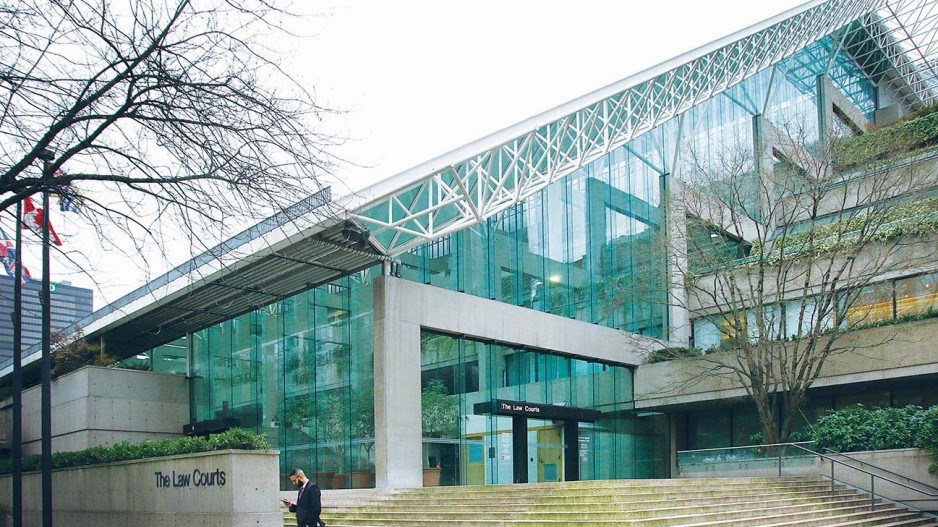Crown lawyers and Meng Wanzhou’s defence traded fire in her extradition case today over defence efforts to introduce new HSBC evidence that showed the bank knew of Huawei Technologies’ relationship with a subsidiary operating in Iran.
Robert Frater, representing the Attorney General of Canada and – in turn – the United States (which is seeking Meng’s extradition), said the defence’s new evidence does not meet the legal requirements to be included in the final committal hearings.
Frater said that, while the legal threshold is modest for the new HSBC documents to meet in terms of reliability, the line is much higher for relevance. In that case, Frater said the HSBC documents do not show the U.S. record of the case [ROC] as obviously unreliable and had to be thrown out.
Rather, the new evidence proposed by Meng’s defence is simply presenting an alternative interpretation of the circumstances around the Huawei CFO’s interactions with HSBC in order for Huawei to retain the bank’s services in 2013, Frater said.
“This [test of relevance] is not an act to show alternative inferences could be drawn,” Frater said. “My friends [the defence] deny they are asking you to do that – to persuade you – but that is exactly what they are doing.”
Frater further notes the Crown’s position that this week’s application to introduce new evidence was no different than previous attempts in this case - attempts that were ultimately denied by the same court. Meng’s defence has not shown anything different about this new evidence that would change the situation, he added.
“What my friend [the defence] is trying to do is reverse the burden of proof,” Frater said. “This is a motion that they brought where they have to establish manifest unreliability. More importantly, it is wrong to ask us to make any concessions when we have no access to the paper and the witness.”
Meng lawyer Mark Sandler, however, disagreed, given the nature of the evidence was from HSBC itself.
“I say, with great respect, everything has changed,” Sandler said. “Because we now have HSBC’s own records, and now we have evidence that… a senior executive was privy to the knowledge [of Huawei’s links to Skycom].”
Earlier today, Sandler wrapped up the defence argument, hammering on the point that a term keyed upon by the U.S. - that Meng allegedly told HSBC in a 2013 that Skycom was “controllable” and not in danger of violating U.S. sanctions in Iran – was never passed on by HSBC officers onto the final risk assessment committees in 201 and 2014.
Those committees ultimately decided to retain Huawei and Skycom as clients, which the U.S. said exposed the bank to penalties for Huawei/Skycom’s operations in Iran in violation of U.S. sanctions.
Sandler, however, said Meng’s description of Skycom as “controllable” – interpreted by the Crown and the U.S. as an attempt to mislead HSBC on the risk of doing business with Huawei – was never passed on by the officials meeting with Meng in 2013 to the risk assessment committees in 2013 and 2014.
“The ROC is unreliable if it represented that ‘controllable’ was passed on to the risk committee,” Sandler said. “... But that recommendation never made it to the risk committee, so there cannot be causality there.”
Frater, however, countered by saying that the defence’s position that everyone at HSBC knew of Huawei’s connections to Skycom goes against HSBC risk committee testimony that its official were not aware of the fact Skycom operated within Huawei’s banking account and other structures.
“In the ROC, Meng called Skycom a third-party partner of Hauwei,” Frater said. “... The HSBC [risk committee] said it did not know the actual relationship, but the defence said everyone knew. If the defence want to challenge those facts, they have to do it at trail [after extradition].”
When challenged by Associate Chief Justice Heather Holmes on the fact that HSBC continued to work with Skycom as a client - even after a Reuters story exposed the company’s operations in Iran - as possible signs that the bank knew of the links between Huawei and Skycom, Frater replied that the record showed HSBC made a number of emails to Huawei to demonstrate their concerns.
The result, Frater said, was a consistent effort by Huawei to distance themselves from Skycom, calling them a “third-party partner” repeatedly when the reality - according to the Crown - was that “Huawei is Skycom.”
Nothing in the new evidence, Frater added, showed that everyone at HSBC knew of the Huawei/Skycom relationship. Rather, it showed questions made to Huawei indicating the contrary, he noted.
In closing, Frater again asked Holmes to consider whether Meng’s application is within the power and duties of extradition hearings - or if a proper determination needs to take place at trial, after Meng has been extradited.
“We are so far down in the weeds with this case that this ought to give Your Ladyship pause,” Frater noted to Holmes. “This is the sort of discussion that ought to take place at trial.“
Meng lawyer Scott Fenton, unsurprisingly, had a different view.
“If [an HSBC risk committee] has less knowledge about its own clients - because that’s what we are talking about - that would not make a non-deceptive statement by Ms. Meng deceptive,” Fenton said. “That may be an matter for committal, but it’s important for us to be able to argue this at committal with the evidence we seek to be admitted.”
Holmes indicated she will have some sort of a decision on the new evidence in July 9, the date of the case’s next management hearing.




